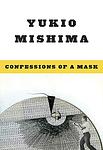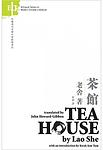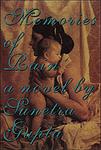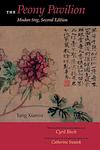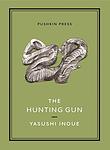Genres
Drama is a genre of literature that typically deals with serious and emotional themes, often exploring the complexities of human relationships and the struggles individuals face in their lives. These books often feature intense character development and intricate plotlines, delving into the depths of human experience and the challenges of navigating the world around us. From family dramas to political intrigue, the drama genre encompasses a wide range of stories that aim to captivate readers with their raw and powerful storytelling.
Date Range
Reading Statistics
Click the button below to see how many of these books you've read!
Download
If you're interested in downloading this list as a CSV file for use in a spreadsheet application, you can easily do so by clicking the button below. Please note that to ensure a manageable file size and faster download, the CSV will include details for only the first 500 books.
Download-
1. The God of Small Things by Arundhati Roy
This novel is a poignant tale of fraternal twins, a boy and a girl, who navigate through their childhood in Kerala, India, amidst a backdrop of political unrest and societal norms. The story, set in 1969, explores the complexities of their family's history and the tragic events that shape their lives. Their mother's transgression of caste and societal norms by having an affair with an untouchable leads to disastrous consequences, revealing the oppressive nature of the caste system and the destructive power of forbidden love. The novel also delves into themes of postcolonial identity, gender roles, and the lingering effects of trauma.
-
2. A Suitable Boy by Vikram Seth
Set in 1950s India, this epic novel follows the story of four families over a period of 18 months, focusing primarily on the young woman Lata and her mother's quest to find her a suitable husband. The narrative explores the political, social, and personal upheavals in a newly independent India, struggling with its own identity amidst the backdrop of a society grappling with religious tensions, land reforms, and the shaping of a modern democratic state. Lata's journey is an exploration of love, ambition, and the weight of familial duty.
-
3. A Fine Balance by Rohinton Mistry
"A Fine Balance" is a poignant narrative set in India during the 1970s, a time of political turmoil and upheaval. The plot revolves around four diverse characters - a widow, a young student, and two tailors - who are brought together by fate. Through their interconnected lives, the book explores themes of caste, poverty, political corruption, and the human spirit's resilience. It offers a profound exploration of the delicate balance that sustains life amidst adversity.
-
4. Dream of the Red Chamber by Cao Xueqin
"Dream of the Red Chamber" is a classic Chinese novel that provides a detailed, episodic record of life in the aristocratic Jia family. The story revolves around the love triangle between the family's heir, his sickly cousin, and his other cousin who is raised to be his wife. It is also a critique of the family's decline and a reflection on the societal norms of the time. The novel is famous for its vivid characterization and psychological depth, and its unique portrayal of Chinese society during the Qing dynasty.
-
5. The Sea of Fertility by Yukio Mishima
"The Sea of Fertility" is a four-part epic that follows the life of Shigekuni Honda, a man who believes in reincarnation. The series spans several decades, beginning in the early 20th century and ending in the 1970s, and explores Japanese history, culture, and spirituality. As Honda encounters individuals he believes to be the reincarnations of his childhood friend, he grapples with questions of identity, mortality, and the nature of the soul.
-
6. Silence by Shūsaku Endō
"Silence" is a historical novel set in the 17th century, which follows a Portuguese Jesuit missionary who travels to Japan to comfort local Christians and find his mentor, who is rumored to have renounced his faith. The protagonist experiences the brutal persecution of Christians by the Japanese government, and grapples with the silence of God in the face of suffering. The narrative explores themes of faith, doubt, cultural clash, and the human capacity for both cruelty and endurance.
-
7. Clear Light of Day by Anita Desai
"Clear Light of Day" is a novel set in Old Delhi, which explores the dynamics of the Das family. The story shifts back and forth in time, reflecting on the lives of siblings Bim, Raja, Baba, and Tara, and their relationships with each other and their aunts. The narrative delves into themes of memory, time, and decay, as well as the political upheaval of the Partition of India. The novel is a poignant study of family relationships, personal change, and loss.
-
8. The Recognition of Sakuntala by Kālidāsa
"The Recognition of Sakuntala" is an ancient Indian play that tells the story of a beautiful woman named Sakuntala who lives in a hermitage and falls in love with King Dushyant. After a series of misunderstandings and a curse that causes the king to forget Sakuntala, the two are eventually reunited when a fisherman finds the royal signet ring that Dushyant gave Sakuntala, leading to her recognition. The play is a classic example of the Indian dramatic tradition, with its mix of romance, comedy, and elements of the supernatural.
-
9. The Makioka Sisters by Junichiro Tanizaki
"The Makioka Sisters" is a novel set in pre-World War II Japan, following the lives of four sisters from a once-wealthy Osaka family. The story focuses on their struggles to maintain their traditional lifestyle and status in a rapidly changing society. The two elder sisters are concerned with finding a suitable husband for the third sister, while the youngest sister, more modern and independent, resists the constraints of her family's expectations. The book provides a detailed and nuanced exploration of the clash between tradition and modernity in Japanese society.
-
10. The Twilight Years by Sawako Ariyoshi
"The Twilight Years" is a poignant story revolving around the life of a middle-aged woman who is burdened with the responsibility of taking care of her ageing and ailing father-in-law while trying to balance her work and personal life. The novel explores the themes of old age, family responsibilities, societal expectations, and the struggles of women in a patriarchal society. It offers a critical examination of the social, cultural, and personal issues related to aging and care-giving in post-war Japan.
-
11. Waiting by Ha Jin
"Waiting" is a story set in China during the Cultural Revolution and its aftermath, revolving around the life of Lin Kong, a military doctor who is torn between his love for two women. He is stuck in an arranged marriage with his traditional wife in the countryside, while he falls in love with a modern, city nurse. The novel explores his 18-year struggle to divorce his wife and marry his lover, depicting the clash between traditional and modern Chinese culture, personal desires, and societal expectations.
-
12. The Sound of the Mountain by Yasunari Kawabata
The novel centers around an aging businessman who, upon hearing nightly sounds from the nearby mountain, begins to confront his own mortality and the complexities within his family. As he navigates his strained relationship with his wife, his adulterous son, and his daughter-in-law whom he harbors feelings for, he experiences a profound sense of solitude and existential dread. The narrative subtly explores themes of aging, alienation, and the ephemeral nature of life.
-
13. The Guide by R. K. Narayan
"The Guide" follows the life of Raju, a corrupt tour guide who, through a series of events, ends up in prison, and later becomes a spiritual guide. After his release from prison, Raju is mistaken for a holy man by villagers and gets involved in resolving a drought problem by fasting. The novel explores themes of life, death, and redemption, as well as the complex nature of human relationships and the power of belief.
-
14. Confessions of a Mask by Yukio Mishima
The novel explores the life of a young man living in post-World War II Japan who grapples with his homosexuality in a society that does not accept it. The protagonist must wear a metaphorical mask to hide his true identity and desires, leading to a life of self-denial and inner turmoil. The narrative delves into themes of identity, sexuality, societal expectations, and the struggle for self-acceptance.
-
15. Forbidden Colours by Yukio Mishima
"Forbidden Colours" is a deeply introspective novel that explores themes of beauty, youth, old age, love, and betrayal, set against the backdrop of post-war Japan. The story follows a young, beautiful man who is manipulated by an elderly writer to seek revenge on women. The young man's beauty becomes a weapon, while the old man's bitterness and jealousy drive the plot. The novel delves into the darker aspects of human nature and society's obsession with beauty, providing a stark commentary on the human condition.
-
16. Retreat Without Song by Shahan Shahnour
"Retreat Without Song" is a poignant narrative of the Armenian diaspora, focusing on the life of an immigrant living in Paris during the early 20th century. The protagonist grapples with feelings of alienation, despair, and disillusionment as he navigates his new life in a foreign land while dealing with the haunting memories of his homeland and the Armenian genocide. The novel explores themes of identity, exile, and the psychological impact of displacement, providing a deep insight into the human condition and the struggle for survival.
-
17. The Sound of Waves by Yukio Mishima
The novel is a classic tale of first love between a young fisherman and a pearl diver in a remote Japanese coastal village. The story is set in the post-war era and it explores themes of love, tradition, and the power of nature. The fisherman's love for the pearl diver is tested by the village's gossip and the jealousy of a wealthy rival. Despite the challenges, their love remains pure and steadfast, mirroring the timeless and unchanging rhythm of the sea and the cycles of nature.
-
18. Teahouse by Lao She
"Teahouse" is a historical drama that explores 50 years of Chinese history (1898-1948) through the microcosm of a Beijing teahouse. The narrative follows the lives of the teahouse owner and his customers, reflecting the social changes, political turmoil, and cultural shifts of the time. The story provides a deep insight into the Chinese society, its traditions, and the impact of Western influence. It also highlights the struggle of the common people amidst corruption, oppression, and the collapse of traditional values.
-
19. The Waiting Years by Fumiko Enchi
The novel is a poignant exploration of the life of a Japanese woman in the late 19th and early 20th centuries, who endures the pain and humiliation of serving her husband's needs by finding him concubines. As she navigates the complexities of her role within a rigidly patriarchal society, she faces the emotional turmoil of sacrificing her own happiness for the sake of family duty and social expectations. The narrative delves into themes of female subjugation, the intricacies of marital relationships, and the silent resilience of women, offering a powerful critique of the era's gender dynamics and the personal costs of adhering to tradition.
-
20. Memories of Rain by Sunetra Gupta
The novel explores the crumbling marriage of a Bengali woman and her Greek husband. The narrative alternates between Kolkata, India, and London, England, and spans over a decade, capturing the protagonist's emotional turmoil, her struggle to reconcile her Indian heritage with her Western lifestyle, and her eventual decision to leave her unfaithful husband. The novel is rich in poetic language and imagery, and it delves deep into themes of identity, cultural displacement, and the complexities of love and betrayal.
-
21. A Dark Night's Passing by Naoya Shiga
The novel delves into the introspective journey of a troubled Japanese writer grappling with his own sense of guilt and the search for redemption. As he navigates through a series of personal tragedies, including familial betrayal and the complexities of love and loss, he embarks on a quest for self-understanding. Set against the backdrop of early 20th-century Japan, the narrative explores the protagonist's inner turmoil and his struggle to reconcile his societal obligations with his desire for personal fulfillment, ultimately leading to a profound transformation.
-
22. Coin Locker Babies by Ryū Murakami
The book follows the harrowing journey of two boys abandoned at birth in a Tokyo train station locker, who grow up in an orphanage together and form a deep bond. As they navigate a dystopian underworld filled with violence and decay, the boys, now teenagers, embark on a quest for revenge against the mothers who left them and the society that neglected them. Their search for identity and belonging takes them through a surreal landscape of urban chaos, where their shared trauma and desperation for meaning lead them down a destructive path, challenging the reader with themes of abandonment, survival, and the human capacity for both love and brutality.
-
23. The Peony Pavilion by Tang Xianzu
"The Peony Pavilion" is a romantic tragicomedy play set during the Ming Dynasty, revolving around the love story between Du Liniang and Liu Mengmei. After falling in love with Liu in a dream, Du Liniang, the daughter of a high official, pines for him so deeply that she becomes ill and dies. Her spirit roams, seeking to be reunited with her lover. Liu, a young scholar, later discovers her portrait and falls in love with the image, leading to a series of supernatural events that eventually culminate in Du Liniang’s resurrection and the lovers' marriage. The play explores themes of love, destiny, and the metaphysical, challenging the social norms of the time.
-
24. The Woman in the Dunes by Kobo Abe
This novel tells the story of a schoolteacher and amateur entomologist who travels to a remote seaside village to collect insects. He is tricked into staying the night in a house at the bottom of a sand pit with a mysterious woman, who spends her days shoveling back the ever-encroaching sand. As the days pass, the man realizes he has been trapped and is forced to help the woman with her endless task, leading to a strange and consuming relationship filled with existential dread and fascination.
-
25. The Hunting Gun by Yasushi Inoue
"The Hunting Gun" is a poignant tale set in post-war Japan, revolving around the lives of three women who unknowingly share a common bond, a man with whom they are all involved. The man's secret love affairs and the emotional turmoil they cause are revealed through letters from each of the women. The narrative explores themes of love, betrayal, and the complexities of human emotions, painting a vivid picture of the human condition and the consequences of hidden passions.
Reading Statistics
Click the button below to see how many of these books you've read!
Download
If you're interested in downloading this list as a CSV file for use in a spreadsheet application, you can easily do so by clicking the button below. Please note that to ensure a manageable file size and faster download, the CSV will include details for only the first 500 books.
Download












